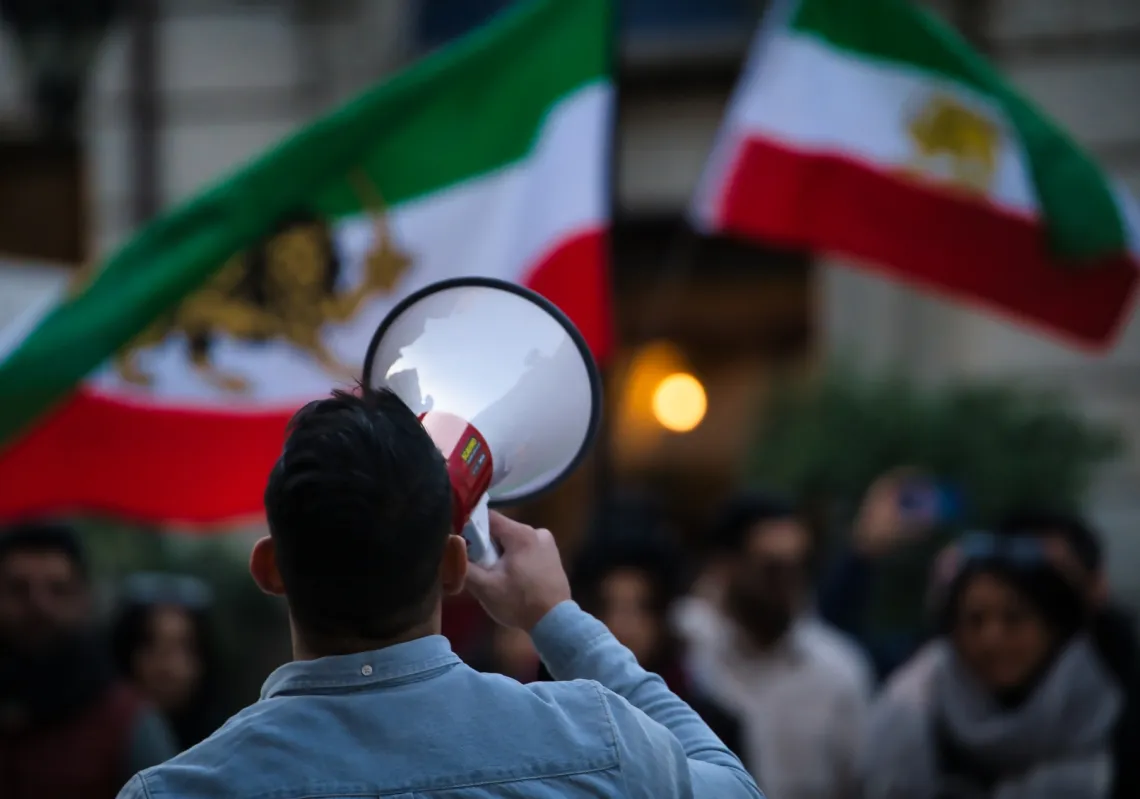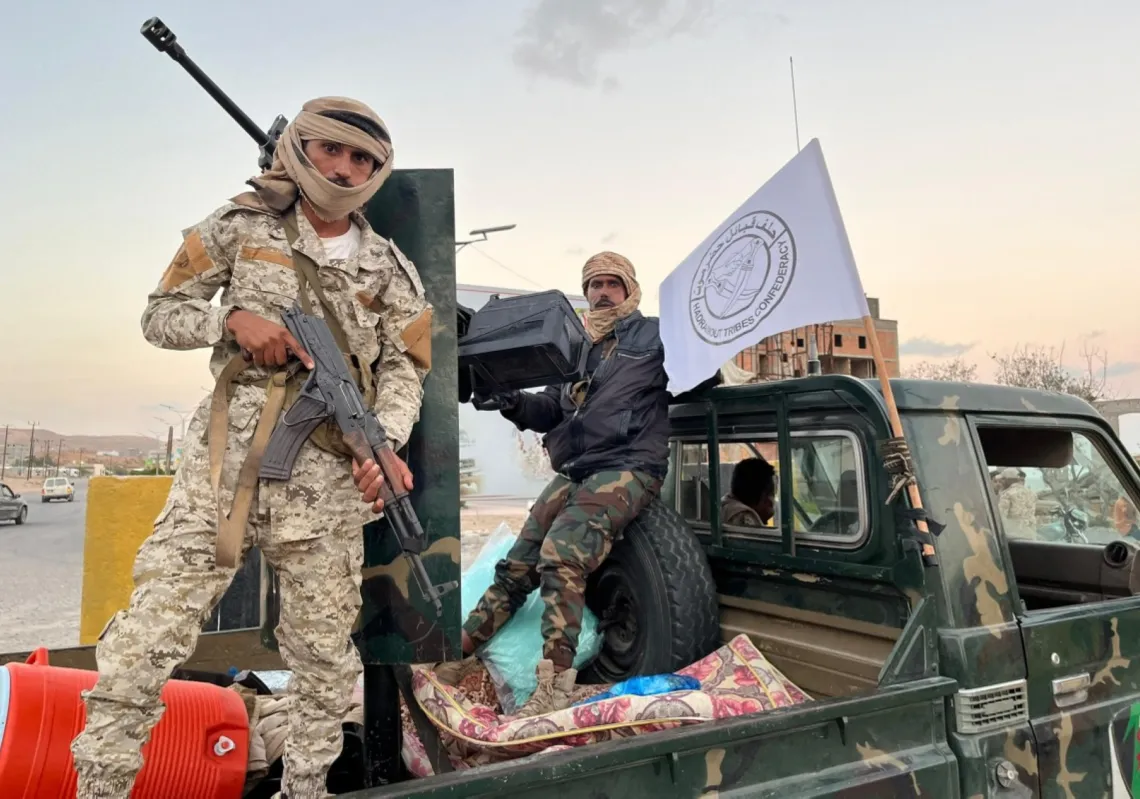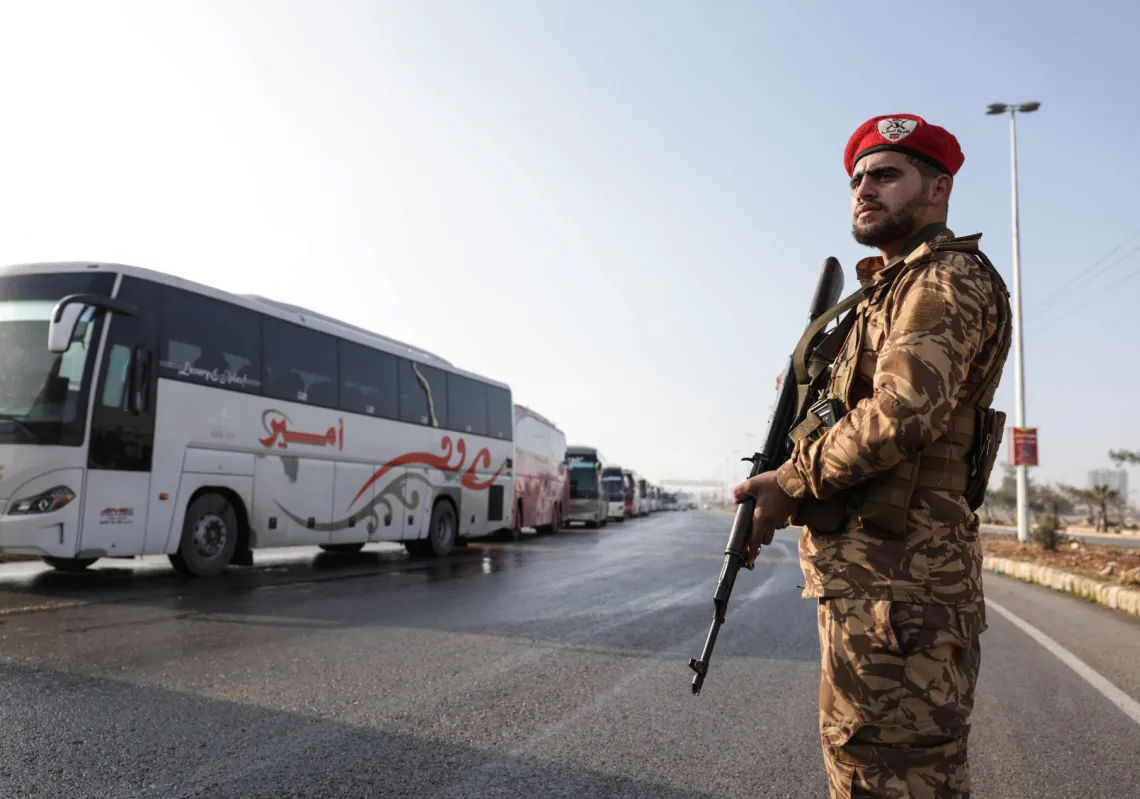 South Sudanese civilians flee fighting in a United Nations base in the northeastern town of Malakal on February 18, 2016, where gunmen opened fire on civilians sheltering inside killing at least five people. (Getty)[/caption]
South Sudanese civilians flee fighting in a United Nations base in the northeastern town of Malakal on February 18, 2016, where gunmen opened fire on civilians sheltering inside killing at least five people. (Getty)[/caption]
by Jon Temin
When a peace agreement is signed, the international community typically responds with congratulations, gratitude, and optimism that the deal will stop the fighting. Sometimes, well-wishes are accompanied by commitments of financial support to help the countries involved recover and rebuild.
But when the main belligerents in South Sudan’s five-year-long civil war signed a new peace agreement on August 5 in Khartoum, the international response was circumspect at best. The agreement is fundamentally a power-sharing deal between South Sudanese President Salva Kiir and rebel leader Riek Machar. It resembles a 2015 peace deal between the two sides that failed spectacularly and triggered renewed fighting. The “Troika” of western countries long involved in issues related to South Sudan—Norway, the United Kingdom, and the United States—criticized the agreement and its signatories. In a statement published on August 10, the group emphasized its concern. “The arrangements agreed to date are not realistic or sustainable,” it warned. “Given their past leadership failures, South Sudanese leaders will need to behave differently and demonstrate commitment to peace and good governance.” The White House issued a statement shortly before the deal was signed, saying that the United States was “deeply concerned about the direction of the current peace process,” citing the failure to include a broad range of South Sudanese groups in the negotiations.
This reaction reflects a new attitude on the part of the United States, which for years failed to sufficiently pressure Kiir’s government even as his forces massacred civilians, carried out widespread sexual abuse, and tortured prisoners as part of a civil war that has displaced more than four million people since it began in 2013. The Trump administration’s skepticism toward the new agreement suggests that the United States might be rethinking the assumptions that have shaped its response to the conflict so far. Washington should seize the opportunity to learn from its past policy mistakes.
LESSONS LEARNED?
South Sudan declared independence from Sudan in 2011, and Kiir, as president of then semiautonomous Southern Sudan, became the new nation’s first president. The Sudan People’s Liberation Army that he leads had been the major rebel movement during the second of two civil wars fought against the Sudanese government based in Khartoum. After South Sudan’s independence, the political wing of the same movement, the Sudan People's Liberation Movement (SPLM), became the new nation’s ruling party. Almost immediately, fissures appeared within the movement, especially between Kiir and Machar, the country’s new first vice president. In 2013, a full-on civil war broke out when forces loyal to Kiir clashed with factions supporting Machar in the capital city, Juba.
The United States attempted to prevent the tensions between Kiir and Machar from devolving into conflict and, after 2013, made repeated efforts to broker a lasting peace deal. Washington took such an active role thanks to its long-standing engagement with South Sudan and President Barack Obama’s commitment to preventing atrocities. Yet its efforts achieved little. To understand why and to draw lessons for preventing future atrocities, I recently interviewed more than 30 former and current U.S. government officials and policy experts, analysts, and civil society leaders who have worked on issues involving South Sudan for many years. Four lessons concerning the Obama administration’s attempts to prevent and end South Sudan’s civil war emerged from this process. (The findings are described in detail in a report I wrote for the United States Holocaust Memorial Museum’s Simon-Skjodt Center for the Prevention of Genocide.)
First, the United States should always question the legitimacy of belligerents in a mass-atrocity scenario, even if they are erstwhile U.S. allies. Throughout South Sudan’s civil war, the United States has treated Kiir as the rightful leader of the country, even though his claim to legitimacy is dubious. Kiir was elected in 2010 to be the president of the semiautonomous Government of Southern Sudan; he has never been elected president of the independent South Sudan. His mandate from the 2010 election expired in 2015, and the war has made new elections impossible. (South Sudan’s parliament recently extended Kiir’s term until 2021.)
Forces loyal to Kiir have carried out multiple atrocities, such as ethnically targeted killings in Juba in the early days of the war and recent attacks in opposition-held villages. But the United States has consistently treated him favorably. The United States managed only a tepid response to the massacres committed by forces aligned with Kiir in Juba. In 2013, when the Ugandan military intervened to prop up Kiir, the United States acquiesced. The next year, the Obama administration invited Kiir to a historic gathering of African heads of state in Washington, even as it excluded other leaders for committing human rights violations. The United States did not hold Kiir and his government accountable for blatant breaches of the 2015 peace agreement. In 2016, when government forces sought to assassinate Machar (who, it should be noted, is also responsible for massive levels of violence), the U.S. response was muted. And for years, Washington refused to support an arms embargo that would have hamstrung Kiir’s government.
[caption id="attachment_55257392" align="aligncenter" width="1024"]
 US Ambassador to the United Nations Nikki Haley (C) looks on with US Africa commander, General Thomas D Waldhauser (2L) as she meets President of South Sudan, Salva Kiir (R) at The President Office in Juba, South Sudan on October 25, 2017. (Getty)[/caption]
US Ambassador to the United Nations Nikki Haley (C) looks on with US Africa commander, General Thomas D Waldhauser (2L) as she meets President of South Sudan, Salva Kiir (R) at The President Office in Juba, South Sudan on October 25, 2017. (Getty)[/caption]
Individually, each of these policy decisions was understandable, even justifiable. Taken together, they sent a clear message of U.S. support for the government of South Sudan and its president. A less favorable stance toward Kiir—and even refusal to recognize his legitimacy—could have weakened his domestic support base and international standing and changed the calculations he made.
A second takeaway is that policymakers should not overvalue individual relationships in peacemaking efforts. Throughout the interviews I conducted, former U.S. officials and others repeatedly referenced long-standing relationships between senior officials in both the George W. Bush and Obama administrations and key South Sudanese political leaders. Although these relationships were valuable sources of access and information, they were also problematic and misunderstood. In some instances, they may have colored policymakers’ judgments, and too often, U.S. officials wrongly assumed that they could use their relationships with the South Sudanese as sources of leverage. As one former U.S. official put it, “You’re good friends because you have leverage. You don’t have leverage because you’re good friends.” U.S. officials should not have placed so much value on these relationships, which may have crowded out other efforts to build leverage, such as through an arms embargo or similar pressures.
Third, when mass atrocities are involved, policymakers should always question their core assumptions and long-held beliefs. South Sudan’s relatively smooth secession and independence process produced a feel-good narrative. As the venality of South Sudan’s leaders, and their disregard for the well-being of the broader population, became increasingly apparent, U.S. policy was slow to reorient. At multiple stages, policymakers failed to step back and broadly reassess policy or to undertake any sort of “red team” analysis. The presence of mass atrocities is indicative of the dissolution of basic norms and institutions—something fundamental is broken—that makes the need to question core assumptions about a society and its leaders even more urgent.
Finally, indecision in Washington compromised peacemaking efforts and sent mixed signals to South Sudan and others in the region. U.S. officials wavered between a desire to lead, on the one hand, and a preference to defer to African leadership, on the other, and there was internal disagreement over how much leverage the United States had at its disposal. More broadly, Washington’s response to South Sudan’s civil war speaks to the underresourcing of crisis response in Africa—in terms of diplomatic capital and high-level attention—even though U.S. foreign assistance to South Sudan is quite robust. If preventing atrocities is indeed a core U.S. foreign policy objective, in the future, the country should deploy the diplomatic and political resources needed to be effective.
The Trump administration, to its credit, has made some positive moves. It imposed a unilateral arms embargo on South Sudan and supported a broader arms embargo at the UN, which went into effect in July. The absence of ties between senior Trump officials and South Sudanese leaders may allow the administration to reassess its policy. But without those ties, the Trump administration might not prioritize South Sudan the same way the previous two administrations did. What’s more, the United States may not have the diplomatic capital necessary to meaningfully influence events on the ground in South Sudan and in regional capitals.
A DISSAPOINTING DEAL
The United States’ response to the most recent peace agreement suggests that it might be learning from past mistakes. Unfortunately, the same does not appear to be true of the mediators behind the deal, which repeats several errors from prior attempts. The agreement creates three new vice-presidential posts, for a total of five, in an attempt to spread opportunities for patronage. But that will enlarge an already bloated government and is likely to deepen massive levels of corruption. In addition, Kiir and Machar have proven, through two previous stints as president and vice president, that they cannot peacefully coexist at the helm of government. Neither deserves another opportunity to lead.
Most worrisome, as the White House pointed out in its statement on the deal, the new agreement involves solely elites and belligerents and excludes the voices and interests of the South Sudanese people, who have suffered the most from the war. A better process would be more inclusive of views from civil society, religious leaders, and displaced people, among others, leading to a more durable outcome. Until mediators are willing to expand the circle of who is included in the peacemaking process, there are few reasons to believe that sustainable peace and genuine reconciliation are possible.
This article was originally published on ForeignAffairs.com.








